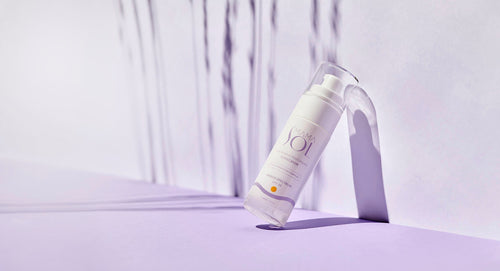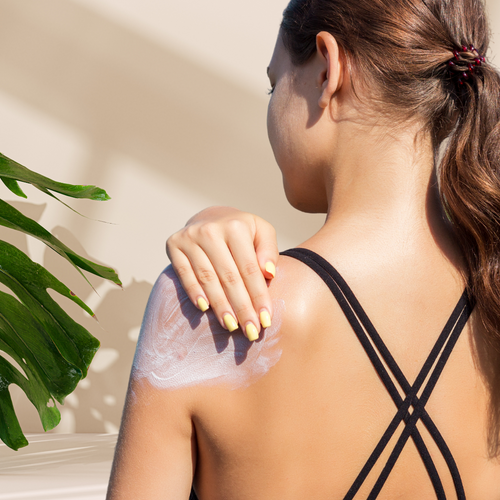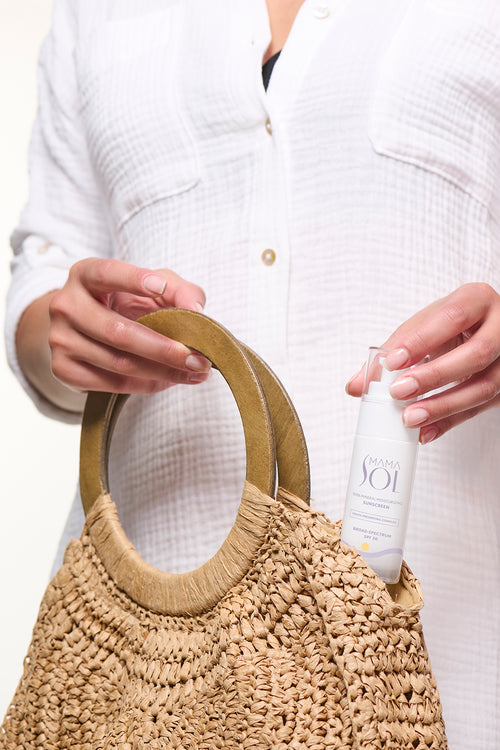
Choosing the right sunscreen is essential for skin protection, but with so many options out there, it can be overwhelming and confusing. One common question is: Is mineral sunscreen better than chemical sunscreen?
This question doesn’t have a simple yes-or-no answer. The truth is that the right choice depends on multiple factors, such as your skin type, how much time you spend outdoors, whether you have sensitive or allergy-prone skin, and even your views on environmental sustainability. For some people, chemical sunscreen may work best because of its light texture and easy absorption, while for others, mineral sunscreen may be a safer and more reliable option. By looking at the benefits and drawbacks, you can better decide which one fits your lifestyle and skincare goals.
What is Mineral Sunscreen?
Mineral sunscreen, also known as physical sunscreen, relies on natural mineral ingredients like zinc oxide and titanium dioxide to create a barrier that shields your skin. Instead of being absorbed, these minerals sit on the surface and physically block UV rays by reflecting and scattering them away. You can think of it as placing a layer of tiny protective shields across your skin.
This function is very different from how chemical sunscreens work. Chemical sunscreens penetrate the skin and absorb UV rays, then convert them into heat, which is released from the body. While both approaches can provide broad-spectrum protection, the way they interact with your skin is what sets them apart. Mineral sunscreens are often favored by dermatologists for people with delicate skin because they cause less irritation and are less likely to clog pores.
Another important point is that mineral sunscreen tends to be more stable in sunlight. Some chemical filters can break down after prolonged sun exposure, requiring stabilizers to keep them effective. By contrast, zinc oxide and titanium dioxide maintain their structure and effectiveness without as much risk of degradation. This gives mineral sunscreens a strong reputation for reliability, especially during long outdoor activities.
Benefits of Mineral Sunscreen
-
Better for Sensitive Skin – If you have sensitive skin that easily reacts to products, mineral sunscreen may be the safest option for you. Because it stays on the surface instead of penetrating into deeper layers, it greatly reduces the risk of irritation. People with rosacea, eczema, or acne-prone skin often notice fewer flare-ups when they switch to mineral formulas. Dermatologists frequently recommend zinc oxide sunscreen for children and adults alike because of its gentle nature.
-
Safe for Pregnancy and Nursing – Another reason mineral sunscreen is often recommended is that it’s considered one of the safest options for pregnant or breastfeeding women. The FDA has approved zinc oxide and titanium dioxide for general use, and studies have shown that these ingredients do not easily penetrate the skin barrier. This makes them less likely to pose risks to a developing baby compared with certain chemical ingredients. Many expecting mothers prefer mineral sunscreen because it gives them peace of mind while still offering essential sun protection.
-
Immediate Protection – One of the most practical benefits of mineral sunscreen is that it works the moment you apply it. Unlike chemical sunscreens, which need about 15–30 minutes to absorb into the skin and start working, mineral formulas provide instant coverage. This makes them a convenient choice if you’re heading outdoors quickly, whether it’s for a quick errand, a jog, or taking your kids to the park.
-
Safer for the Environment – Beyond personal skincare, mineral sunscreens are also known for being reef-safe. Many chemical sunscreens contain ingredients like oxybenzone and octinoxate, which can harm coral reefs and disrupt marine ecosystems. These chemicals are so damaging that some places, such as Hawaii and Palau, have even banned sunscreens containing them. Mineral sunscreens, on the other hand, are often labeled eco-friendly and provide a way to protect both your skin and the planet. For ocean lovers, divers, or anyone concerned about sustainability, this can be a major deciding factor.
Comparison: Mineral vs. Chemical Sunscreen
-
UV Protection – Both mineral and chemical sunscreens can effectively shield the skin against UVA and UVB rays. The key difference is in how they deliver this protection. Mineral sunscreen uses physical blockers that reflect rays, while chemical sunscreen absorbs them. Both approaches can be effective, but many people find comfort in the simplicity of mineral sunscreen’s natural barrier.
-
Absorption & Feel – Chemical sunscreens tend to win out. They are usually lightweight, blend smoothly into the skin, and leave no visible residue. Mineral sunscreens, on the other hand, sometimes leave a noticeable white cast, especially on medium to dark skin tones. However, new advancements in skincare technology have improved these formulas dramatically. Today, you can find tinted or sheer mineral sunscreens that minimize or eliminate the chalky look, making them much more wearable.
-
Health Considerations – While chemical sunscreens are widely used and approved for safety, some ingredients—particularly oxybenzone—have raised concerns about potential hormone disruption. Although research is ongoing, these concerns have made some consumers wary. Mineral sunscreens, by contrast, are generally recognized as safe for long-term use and are less likely to raise health-related questions.
Potential Downsides of Mineral Sunscreen
-
White Cast & Texture – Perhaps the most common complaint about mineral sunscreen is the white residue it can leave behind. Because the mineral particles sit on top of the skin, they can sometimes be tricky to blend, and this effect is often more noticeable on medium to deep skin tones. The good news is that newer formulas have improved significantly. Today, you’ll find tinted mineral sunscreens and sheer mineral sunscreen options that provide the same level of protection with a much more natural finish. With a little trial and error, you can discover the best mineral sunscreen for face that complements your skin tone, blends seamlessly, and keeps you protected without the chalky look.
-
Frequent Reapplication – Another drawback is that mineral sunscreens can wear off more easily. Since they don’t bond to the skin in the same way chemical formulas do, activities like swimming, sweating, or wiping your face can reduce their effectiveness more quickly. This means you’ll need to reapply more often—about every two hours, or immediately after getting wet. While this is also true for chemical sunscreens, mineral formulas generally demand stricter reapplication to maintain full protection.
Is Mineral Sunscreen Better?
Is mineral sunscreen better? The answer largely depends on your priorities. For people with sensitive skin, parents with young children, or those who want eco-friendly products, mineral sunscreen is often the better choice. Its safety profile, instant effectiveness, and environmental benefits make it a standout option.
On the other hand, if you prefer a sunscreen that feels weightless, blends seamlessly, and requires less effort to reapply, you may find chemical sunscreens more convenient. It’s important to remember that no sunscreen works unless you use it consistently and generously. The best sunscreen is ultimately the one you enjoy wearing every day without hesitation.
If you’re looking for gentle, pregnancy-safe, and eco-conscious protection, mineral sunscreen is an excellent investment. But don’t feel pressured to stick with only one category—many people use both types depending on the occasion. Whether you choose mineral, chemical, or a combination of both, what matters most is keeping your skin safe under the sun.








